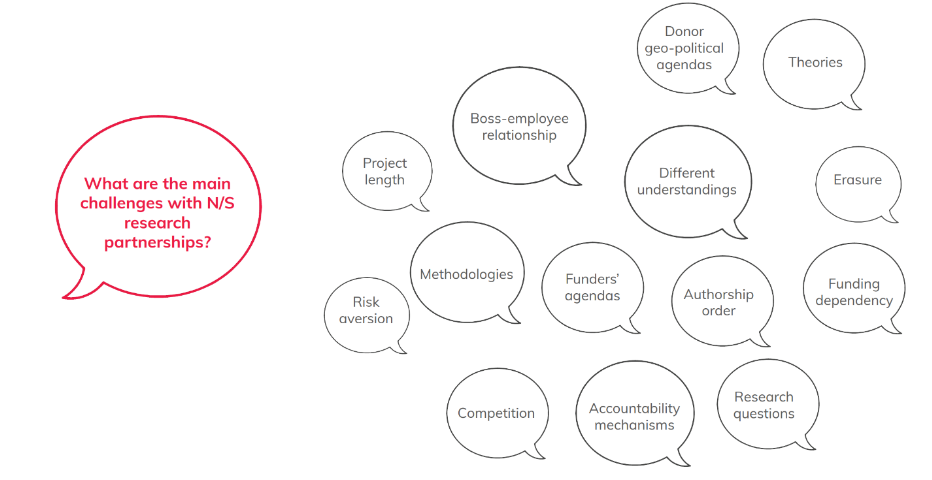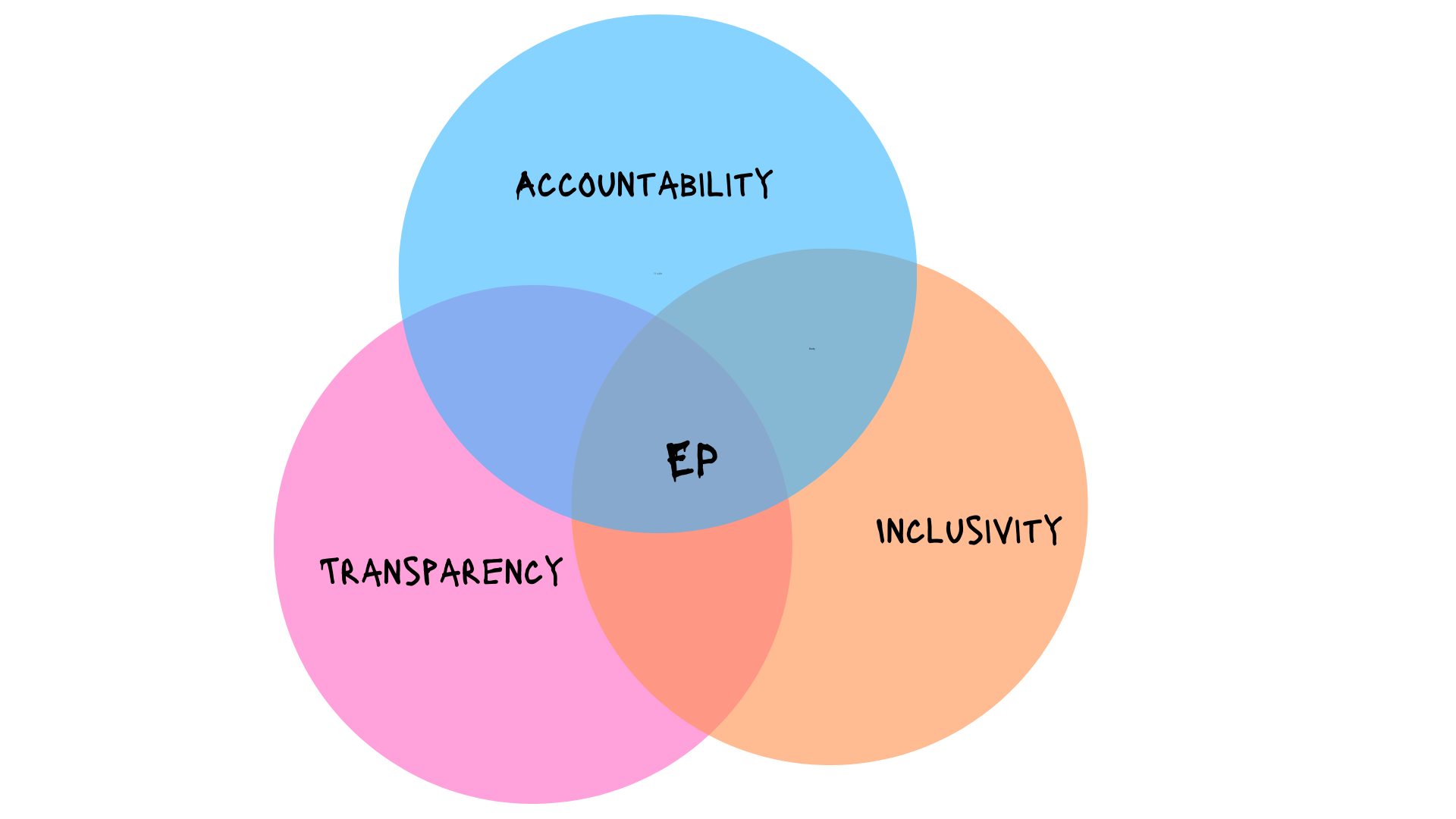Equitable Partnerships in Climate Research: Reflections from Peer-Learning
/
Authors: Carys Richards, Tamara Nyirenda-Jumbe, Sumetee Pahwa Gajjar, Maureen Kabasa
The Capacity Strengthening Hub (CS Hub) to supports the CLARE programme through strengthening the capacity from research to action for sustainable, climate resilient development. It identifies and helps to share capacity, knowledge and learning across the portfolio. Additionally, the hub connects with capacity strengthening efforts in the broader CLARE ecosystem. The CLARE research programme has many partners across different geographies and disciplines. Such a broad reach makes it inevitable for challenges in equitable partnerships development. Projects sometimes overlook aspects of projects delivery such as partnership development as compared to other project delivery priorities. Therefore, in this blog, we discuss how to integrate equitable partnerships into research projects to ensure all stakeholders benefit and contribute effectively.
Equitable partnerships, and the capacities needed to develop and maintain them, is a foundational topic. They are also essential to address the multifaceted challenges posed by climate change. Equitable partnerships ensures that action research is effective, sustainable and transformative. In the realm of climate adaptation and resilience, the collaborative efforts of all stakeholders, including researchers, practitioners, communities, and policymakers are indispensable. However, traditional models of engagement and partnership development often fall short in fostering genuine equity. This is particularly the case in the context of diverse, global partnerships. By exploring equitable partnerships in practice, we can better learn and integrate equity in CLARE programs for more impactful outcomes.

Figure: Some of the challenges with North-South research partnerships (source: Geetika Khanduja’s presentation at the CLARE Capacity Strengthening Hub Peer Learning Session)
The Peer learning Session
The CS Hub organised a peer learning session to critically explore equitable partnerships specifically within research consortia in the domain of climate adaptation and resilience.
“Reimagining partnerships will mean adopting an actively decolonial, anti-racist and gender-inclusive approach that actively pushes for equity – rather than assuming that it will happen naturally” (Tracy Kajumba, 2023).
The session drew upon the vast and diverse experiences within CLARE and beyond to define and explore equitable partnerships. This included a deep-dive into the challenges within partnerships, and brainstorm how individuals and organisations can build equitable partnerships. The focus of the session was on the concept of ‘southern leadership’, and how it can be enabled in research given the complexity of social, economic and geo-political dynamics. Despite a strong consensus for a shift from traditional hierarchical models towards collaborative frameworks that foster horizontal exchange, co-creation, and capacity strengthening, challenges to establish and maintain equitable partnerships persist. Addressing these challenges requires collective efforts and commitment to rethinking conventional partnership models.
“Equity is arguably one of the most critical and challenging principles for CLARE.” (Julie Mundy, 2020)
There are a lot of equity considerations within CLARE. These include the institutional differences between those based in the Global North and Global South, diverse political environments, differences between research and non-research partners, gender considerations, and dynamics of national and intra-regional politics. These aspects significantly shape the contexts within which we are developing partnerships.
Reflections from Equitable Partnerships in Practice
We were joined by two guest speakers – Tracy Kajumba (Director – LIFE-AR Secretariat, IIED) and Geetika Khanduja (Program Officer – Evidence Use and Research Partnerships, Southern Voice) They presented their reflections from practice and shared insights from their experiences of understanding, advocating for and challenging ideas around ‘equitable partnerships’.
Tracy Kajumba’s Presentation was based on self-reflective research done by IIED to highlight gaps and opportunities for establishing equitable partnerships. The assessment explored the dynamics of effective and ineffective partnerships. The findings are set to continue influencing IIED’s internal systems and external policy initiatives by creating spaces for ongoing learning.
Geetika’s Presentation centered on the ER4D (Equitable Research for Development) Initiative. It is supported by IDRC, and fosters collaboration between Southern Voice and the Institute for Development Studies (IDS), UK. The initiative explored the variety of perspectives on equitable partnerships. Key questions included: What are the main challenges with North-South research partnerships? How does this affect research outcomes? What needs to change?
Highlights from Plenary
The interaction with the presenters, project focal points and wider CLARE team uncovered some key highlights for equitable partnerships within CLARE:
- Valuing different knowledge systems: Equitable partnerships are based on knowledge systems. We also must pay attention to how we value different knowledge systems and how this interplays with our ambitions to develop equitable partnerships.
- Untangling partnerships across CLARE: Acknowledging the diversity and complexity of partnerships across CLARE is important. We should consider differences: within organisations, between organisations, between projects and between ‘funders’ and ‘grantees’. We must also consider the complex environments within which they exist. There is a need to look at the layers of partnerships we are part of and consider how to maintain them.
- Tailoring partnership development approach.: There is no ‘one size fits all’ partnership and not all partnerships can be fully equitable and collaborative. While this can be the end goal, some partnerships may function better in a more ‘transactional’ set-up.
- Incorporating equity into our partnership development.: Despite the challenges, there is a shared ambition across CLARE to integrate equity considerations into partnership development processes. Practical challenges persist, prompting a need to share experiences and resources to support us in fostering equitable partnerships in practice.
- Reflective processes and trust.: Engaging in discussions about partnership dynamics, power and equity requires a level of trust, openness and ability to accept differing perspectives. As the CLARE programme cycle progresses, particularly in spaces like peer learning sessions, conversations about partnership development will become richer and more meaningful.
Equitable partnerships are not just about outcomes; they are rooted in trust, respect, and a shared vision to optimize collaboration, engagement, and learning outcomes.
Categories
Countries
CLARE Pillars
CLARE Themes
CLARE Topics
Published
CLARE Projects
CLARE Partners


